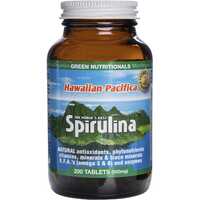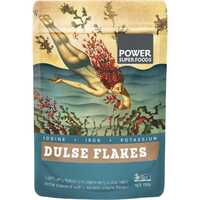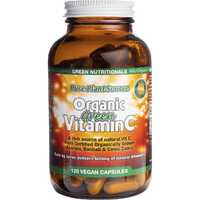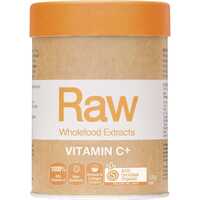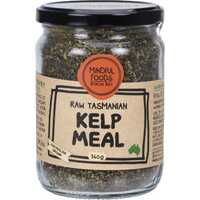When it comes to nutrition, some things are essential. From protein and fat to thiamin and magnesium, various compounds are used by the body to produce energy and enable growth. These essential life ingredients can be classified by size as either macronutrients or micronutrients. Along with proteins, carbohydrates, and fats — the foundations of nutrition — we need to consume vitamins and minerals on a regular basis. These substances are known as micronutrients, and they play a huge role in human health.
In this series of two articles, we'll look in-depth at micronutrients. We'll start out with vitamins before moving on to minerals in Part 2. This week, we'll analyse the difference between vitamins and minerals and then review all 13 essential vitamins and how they contribute to our health.
What Is Essential in Nutrition?
A nutrient is a substance in food that provides energy, supports physical structure, or enables physiological function. There are two broad categories: macronutrients (protein, carbohydrate, and fat) and micronutrients (vitamins and minerals). The human body can't make all of these substances in sufficient quantity, so they must be obtained from your diet.
Essential nutritional compounds come in two main categories:
- Macronutrients provide you with energy for daily life, and they're needed in fairly large quantities. This category includes protein, carbohydrate, and fat — three substances that make up most of our diet. Macronutrients deliver energy directly in the form of calories, which we break down to fuel, repair, and grow our bodies.
- Micronutrients don't supply energy in the form of calories, and they're needed in fairly small quantities. These compounds are still essential, however, as they help to form structures and support vital functions. While micronutrients don't provide energy directly, they're involved in metabolic processes that extract energy from proteins, carbohydrates, and fats.
Where Do Micronutrients Come From?
Micronutrients are used by the body for a variety of metabolic processes. We only require very small amounts of these compounds, but they need to be consumed on a regular basis.
We get vitamins and minerals from the foods we eat, and they also exist in certain liquids and supplements. Along with regular exercise and sufficient sleep, nutrition is the key to good health.
Most of the time, we get all the vitamins and minerals we need from a healthy balanced diet. Eating all five food groups helps to ensure the right combination, including meat and/or other protein sources, dairy or alternatives, grains and cereals, vegetables and legumes, and fruits. Supplements can also play a role, especially if you're sick, stressed, or failing to eat well for any reason.
The Difference Between Vitamins and Minerals
As vitamins and minerals are both micronutrients, they're often mentioned in the same category. Despite both being essential, however, these substances have distinct origins and functions:
- Vitamins are organic substances made by plants or animals. Because they're organic, they can be broken down by air, heat, or acid. There are 13 vitamins essential to human health, and we need them in very low quantities. Vitamins have a wide variety of functions, and vitamin deficiency can result in several diseases.
- Minerals are inorganic elements that come from the soil or water. Due to their structure, they maintain physical integrity when exposed to air, heat, or acid. There are five major essential minerals and many essential trace minerals depending on how they're classified. Minerals are absorbed by plants and consumed by animals, and we need them in larger amounts.
Essential vitamins
The 13 essential vitamins cover just six letters of the English alphabet. Along with vitamins A, C, D, E, and K, there are eight essential B vitamins. Somewhat confusingly, some of these compounds are known by their numerical names. The vitamin B group includes thiamine, riboflavin, niacin, pantothenic acid, B6, biotin, folate, and B12.
All of these vitamins are needed for human health, and they have a range of different functions:
Vitamin A
Vitamin A has a number of roles linked to the immune system. Whenever you need to fight disease and infection, vitamin A comes into play. It also supports skin health and vision, and it plays a role in many aspects of gene health, reproduction, and growth. Vitamin A is present in lots of foods, including those of animal and plant origin. You will find vitamin A in fish and dairy products, orange and yellow fruits, and vegetables such as carrots, pumpkin, and spinach.
Vitamin C
Vitamin C is also known as ascorbic acid or ascorbate. This important vitamin needs to be consumed on a regular basis, as the body can't store it or make it from other compounds. Vitamin C plays a number of essential roles throughout the body, from iron absorption to collagen formation and neurotransmitter regulation. It also supports immune system health and antioxidant function, with this powerful vitamin known to destroy free radicals and fight disease. Vitamin C comes from citrus fruits like oranges and lemons, and green vegetables such as capsicum, broccoli, and spinach.
Vitamin D
Vitamin D has strong links to the sun, and it's an important part of physical health. UV radiation helps to produce vitamin D in the skin, making this vitamin accessible to the rest of the body. The sun can do lots of damage, however, with this vitamin also sold as a nutritional supplement. Vitamin D helps to support bone health, muscle repair, and overall health. Along with the sun, you can find vitamin D in fatty fish, eggs, and fortified milk products.
Vitamin E
Vitamin E is a powerful antioxidant that helps to remove damaging free radicals and fight disease. This vitamin also supports healthy vision and skin, and it plays a role in immune system regulation. Vitamin E can be found in a wide range of foods, from animal proteins to nuts, seeds, and leafy greens. Vitamin E is easily destroyed by heat, so you won't find it in many processed or deep-fried foods.
Vitamin K
This essential vitamin consists of two compounds: K1, which is derived from plant-sourced foods, and K2, which comes from animal-sourced foods. Vitamin K is needed for healthy bones and efficient wound healing, and it's particularly important for blood clotting. Vitamin K is mined from gut bacteria and ingested food, including sources such as avocado, kiwi fruit, spinach, and kale.
Thiamine
Vitamin B is not a single substance — it's an entire group. These water-soluble compounds include thiamine, which is also known as vitamin B1. Thiamine is essential for numerous metabolic functions, including the breakdown of glucose and amino acids. It's available from various sources, including legumes, whole grains, and certain meats and fish. Commercial grain products are often heavily processed, with vitamin B1 removed before being added back.
Riboflavin
Also known as vitamin B2, riboflavin is an essential vitamin and singular chemical compound. This vitamin is needed for the formation of FMN and FAD, two coenzymes involved in energy metabolism, cell respiration, and antibody production. Riboflavin can be found in many meat products, especially beef and chicken liver. Vitamin B2 also has a high concentration in whey protein powder, salmon, turkey, pork, and eggs.
Niacin
Niacin is an essential vitamin used for various metabolic processes. While it's sometimes referred to as vitamin B3, this actually describes a family of vitamins that includes niacin along with nicotinamide and nicotinamide riboside. Niacin can be made from the amino acid tryptophan, and it's also present in a variety of plant and animal-based foods. Common sources of niacin include meat, poultry, red fish, nuts, seeds, and legumes.
Pantothenic Acid
Pantothenic acid, or vitamin B5, is an essential nutrient and singular chemical compound. If you're wondering what happened to vitamin B4 on this list, it was discovered and named before being de-listed as a nonessential compound. Pantothenic acid helps to break down carbohydrates and fat to produce energy, and it's found in dairy products, eggs, oats, potatoes, avocado, and tomato products.
B6
Vitamin B6 is a group of six similar compounds, and it is one of just two B-group vitamins known by its numerical name. This vitamin plays a number of roles in the body, from neurotransmitter and gene expression to amino acid and glucose metabolism. Vitamin B6 can be found in many foods, including whey protein, beef, tuna, salmon, chicken, and banana.
Biotin
Biotin, or vitamin B7, is central to a range of metabolic processes. This essential vitamin helps to break down carbohydrates, fat, and amino acid compounds inside the body. Whenever biotin is found in food, it's bound to protein. For this reason, you'll find the highest concentration of B7 in animal-based products like beef, chicken, pork, turkey, and eggs.
Folate
Folate, otherwise known as vitamin B9, describes many forms of folic acid and related compounds. This vitamin plays an essential role during cell division and growth, which makes it vital during pregnancy and infancy. Folate is present in plant and animal foods, including peanuts, sunflower seeds, lentils, and chickpeas. Other than chicken and calf liver, vitamin B9 has a higher concentration in plant-based foods, which is somewhat rare for B family vitamins.
B12
Vitamin B12 is also known as cobalamin. While this vitamin is synthesised by bacteria in your gut, it can't be absorbed easily and needs to come through food. Vitamin B12 is present in many animal-based food sources, including meat, poultry, fish, eggs, and dairy products. While plant-based foods don't have natural vitamin B12 content, breakfast cereals and other vegetarian products are often fortified with B12.
If you're looking for natural whole foods and quality ingredients infused with vitamins, you've come to the right place. From nuts and seeds to protein powders and supplements, we have all the essential vitamins you need to live a long and happy life. Check out our huge product range today or contact our team to learn more.


 Certified Organic
Certified Organic Vegan Friendly
Vegan Friendly  Vegetarian
Vegetarian Organic Ingredients
Organic Ingredients Dairy Free
Dairy Free Gluten Free
Gluten Free Keto Friendly
Keto Friendly


























